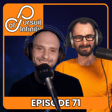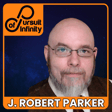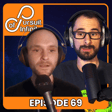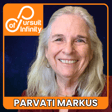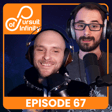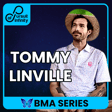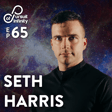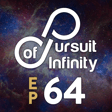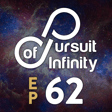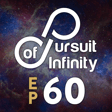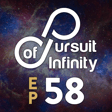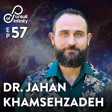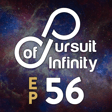
53. Consciousness In A Nutshell with Jay and Lindy Nelson
Here with us this week are returning guests Jay and Lindy Nelson. Jay and Lindy have delved deep into the realm of psychedelic exploration, amateur neuroscience research, and the exploration of Consciousness. They also authored the captivating book Consciousness In A Nutshell: A Psychonautical Odyssey, which can be found anywhere you buy books! Throughout their journey, Jay and Lindy have dedicated themselves to unraveling the mysteries of the mind and pushing the boundaries of human understanding. In this conversation we delve into their unique insights, experiences, and the transformational power of defining and expanding our consciousness. Links to everywhere you can find them can be found below.
https://www.consciousnessinanutshell.com/ https://www.instagram.com/jayunderscorenelson/ https://www.instagram.com/goforlindy/ https://www.instagram.com/consciousnessinanutshell/ https://www.instagram.com/catalyst.productions/
_________________
Music By Nathan Willis RIP
Follow Pursuit Of Infinity:
www.PursuitOfInfinity.com
Discord: https://discord.io/pursuitofinfinity
YouTube: https://www.youtube.com/channel/UCPpwtLPMH5bjBTPMHSlYnwQ
Spotify: https://open.spotify.com/show/58he621hhQ7RkajcmFNffb
Apple Podcasts: https://podcasts.apple.com/ca/podcast/pursuit-of-infinity/id1605998093
Instagram: https://www.instagram.com/pursuitofinfinitypod/
Patreon: Patreon.com/PursuitOfInfinity




